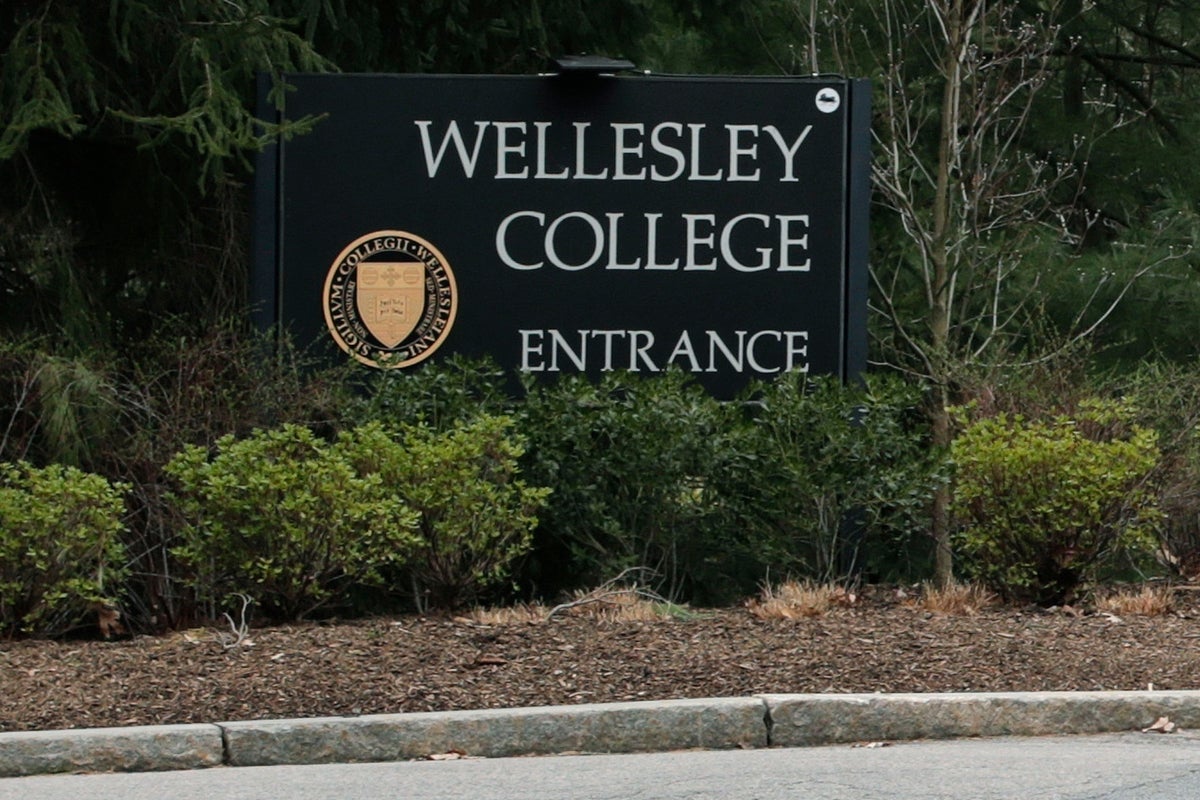
A fierce debate at Wellesley College over who should be admitted to the women's school has intensified with students approving a referendum to allow the admission of transgender men and nonbinary people who do not identify and live as women.
While Tuesday's vote is nonbinding and the administration has already said it has no plans to change its current admissions policy, the issue has roiled the campus just west of Boston.
College president Paula Johnson, senior leadership and trustees acknowledged the vote in a statement and said, “the college will continue to engage all students, including transgender male and nonbinary students, in the important work of building an inclusive academic community where everyone feels they belong.”
Wellesley's current policy allows for the admission of students who live and identify as women, and since 2017 the school has admitted transgender women.
Johnson in a March 6 email to the campus community expressed support for the current policy, writing that it aligns with the college's long term mission of providing “an excellent liberal arts education to women who will make a difference in the world."
The school, with about 2,500 alums that include Madeleine Albright, Hillary Rodham Clinton and Diane Sawyer, will continue to be “a women’s college that admits cis, trans and nonbinary students — all who consistently identify as women,” she wrote, while promising to support the entire diversity of the campus community.
But the email sparked a backlash, in part because nonbinary people do not strictly identify as male or female.
The editorial board at the student newspaper, The Wellesley News, wrote that “we disapprove of and entirely disagree with President Johnson’s email."
“President Johnson’s response is part of a broader trend of Wellesley’s administration and the Board of Trustees intervening in student discourse, which sets a problematic precedent," the editorial board said.
Hundreds of faculty, staff and alumni signed an open letter to Johnson and the trustees supporting the student referendum.
“We find it frankly offensive to suggest that Wellesley’s long and valuable tradition of advocacy for women could be undermined by extending the most basic institutional courtesies and protections to trans and nonbinary students," the letter said.
Sexual Health Educators, a peer sex education group that supports the presence of trans lives on campus, in a statement said it was “outraged" by Johnson's email.
“It is inaccurate and harmful to claim that Wellesley is a place only for those who consistently identify as women, especially in an email that expresses a desire to prevent people from feeling ‘erased or ignored' in the same breath," the organization said.
Johnson's message “carries with it an implication that the administration believes students who do not align themselves with womanhood do not belong on this campus," the organization said.
Johnson and Trustees Chair Debora de Hoyos were not available for comment, a school spokesperson said.
Wellesley is not the first women's college to engage in a debate over transgender admissions, said Genny Beemyn, who uses they/them pronouns and is director of the Stonewall Center at the University of Massachusetts Amherst, a resource group for lesbian, gay, bisexual and transgender people.
“This has definitely been an issue at other women's colleges," they said.
Of 28 women's colleges Beemyn tracks in an online database, just three admit transgender men, including Mount Holyoke College in South Hadley, Massachusetts.
The Wellesley administration is likely fighting a losing battle, Beemyn said.
“I imagine the Wellesley students will continue to protest, and at some point the administration will change their policy,” they said.







